|
|
|
|
Malaria still kills nearly half a million people every year, most of whom live in Africa. Because it’s transmitted by mosquitoes, interventions against mosquito bites – such as indoor spraying and mosquito nets – have played a crucial part in reducing cases. But there’s still a long way to go. A major line of inquiry has been about what attracts and repels mosquitoes to certain individuals. This would open the door to new tools, such as chemical lures and traps. Madelien Wooding and Yvette Naude explain what they found in their new research into chemicals found on the surface of our skin and why their insights bring us one step closer to
figuring out why mosquitoes bite some people and not others.
African governments have historically neglected the funding of research and development in spite of its role in advancing human development. This lack of investment has been brutally exposed by the ongoing COVID-19 pandemic. With 14% of the world’s population, Africa produces only 0.1% of the world’s vaccines. Little wonder that Africans were last to access adequate COVID-19 test kits, personal protective equipment and now vaccines. But does the crisis also present an opportunity? Some of the continent’s top scientists believe it does. In their open letter to African political and research leaders, Janet Midega, Catherine Kyobutungi, Emelda Okiro, Fredros Okumu, Ifeyinwa Aniebo and Ngozi Erondu discuss how COVID-19 should serve as a wake-up call to governments to support research capacity.
Over the next few weeks, we’re asking readers to make a donation to The Conversation Africa. We are a not-for-profit newsroom supported by donors. But we’re constantly looking for ways to expand our funding base in our quest for sustainability. Support journalism that you can trust.
Donate
now
|
Ina Skosana
Health + Medicine Editor (Africa edition)
|

|
|
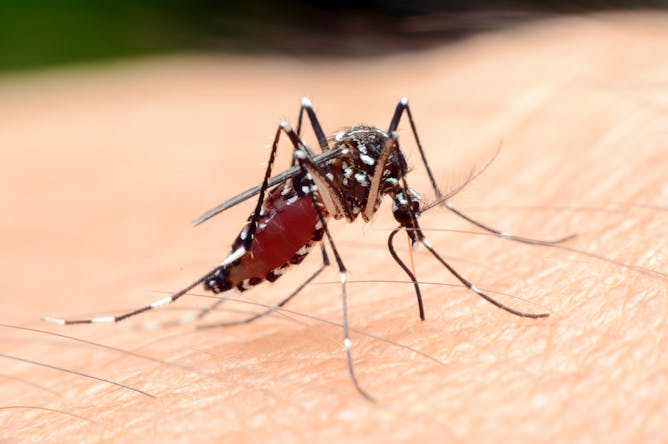
Samimfocus/Shutterstock
Madelien Wooding, University of Pretoria; Yvette Naude, University of Pretoria
There is a chemical skin surface difference between individuals who perceived themselves as being attractive for mosquitoes and those that weren't.
|

Getty Images
Janet Midega, PhD, KEMRI Wellcome Trust Research Programme; Catherine Kyobutungi, African Population and Health Research Center; Emelda Okiro, KEMRI Wellcome Trust Research Programme; Fredros Okumu, Ifakara Health Institute; Ifeyinwa Aniebo, Harvard T.H. Chan School of Public Health; Ngozi Erondu, Georgetown University
Scientific knowledge is a critical driver for human health and wellbeing, economic development and environmental sustainability.
|
Politics
|

Steven Friedman, University of Johannesburg
The problem in municipalities is not that the wrong people are being chosen. It is that the wrong people are doing the choosing – not only of candidates but of what they do if elected.
| |
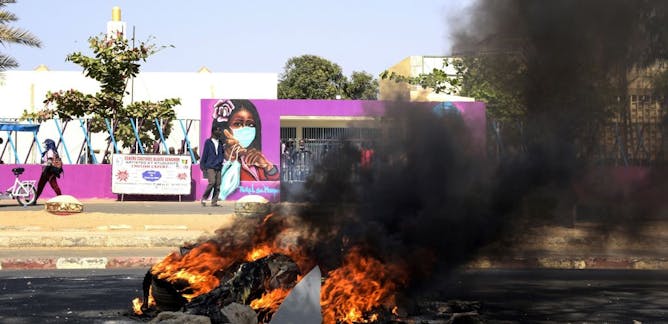
Beth D. Packer, Tufts University; Juliana Friend, University of California, Berkeley
The Senegalese culture of discretion, called "sutura", inhibits survivors of sexual violence from publicly denouncing perpetrators.
|
|
|
Arts, Culture + Society
|

Leah R. Rosenzweig, Stanford University; Yang-Yang Zhou, University of British Columbia
National sports victories increase nationalism and national pride, but can also influence attitudes towards refugees.
| |
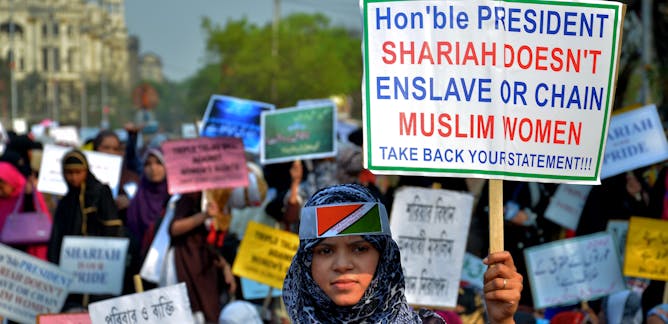
Mark Fathi Massoud, University of California, Santa Cruz
Sharia is often portrayed as being brutal and barbaric. However, in many parts of the world, women are using Sharia to stop oppressive practices.
|
|
|
From our international editions
|
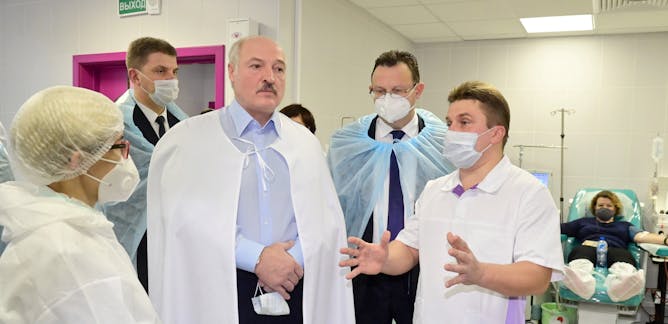
Sumit Ganguly, Indiana University; Dorothy Chin, University of California, Los Angeles; Elizabeth J King, University of Michigan; Elize Massard da Fonseca, Fundação Getulio Vargas; Salvador Vázquez del Mercado, Centro de Investigación y Docencia Económicas; Scott L. Greer, University of Michigan
The pandemic's not over yet, but these world leaders have already cemented their place in history for failing to effectively combat the deadly coronavirus. Some of them didn't even really try.
| |
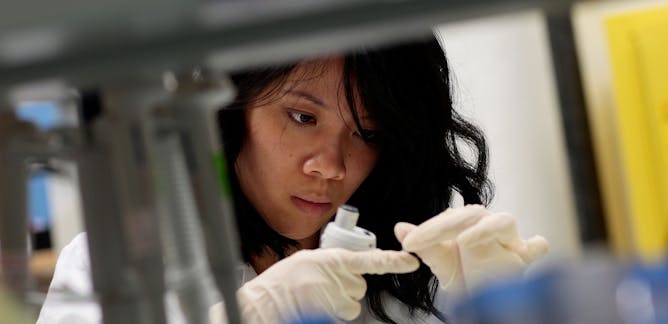
Ronald C. Desrosiers, University of Miami
Scientists developed vaccines for COVID-19 in a matter of months. Why after 37 years do we still not have one for HIV/AIDS? On HIV Vaccine Awareness Day, it's an important question to ask.
|
|
|
En Français
|
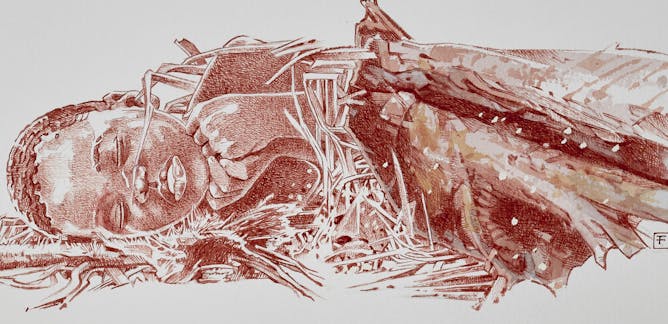
Solange Rigaud, Université de Bordeaux; Africa Pitarch Martí, Universitat de Barcelona; Alain Queffelec, Université de Bordeaux; Francesco d'Errico, Université de Bordeaux
La découverte à Panga Ya Saidi au Kenya de la sépulture d’un enfant de trois ans ouvre une fenêtre inespérée pour comprendre l’évolution des pratiques funéraires en Afrique.
| |
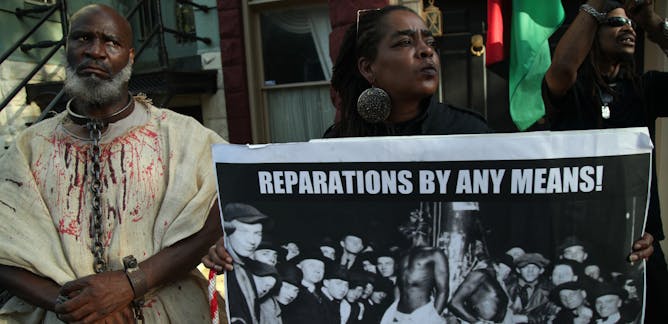
Kwasi Konadu, Colgate University
Aux États-Unis, la Chambre des représentants recommande la création d’une commission sur les réparations à verser aux descendants d’esclaves. Se tourner vers l’Afrique peut indiquer une voie à suivre.
|
|
|
| |
Featured events
|

|
https://ukzn.zoom.us/webinar/register/WN_ZYuLsDeGSjuuUcwjzuFqmQ, https://ukzn.zoom.us/webinar/register/WN_ZYuLsDeGSjuuUcwjzuFqmQ, Kwazulu-Natal, South Africa — National Research Foundation
|

|
MS Teams, Western Cape, 7600, South Africa — Stellenbosch University
|
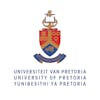
|
Zoom, online, Zoom, online, Gauteng, Zoom, online, South Africa — University of Pretoria
|

|
Virtual/Online, Hatfield, Gauteng, 0083, South Africa — University of Pretoria
|
|
|
|
| |
| |
| |
Would you like to republish any of these articles?
|
|
It’s free to republish, here are the guidelines.
Contact us on africa-republish@theconversation.com in case you need assistance.
|
| |
| |
| |
| |
|
|
|
|
|
|
|